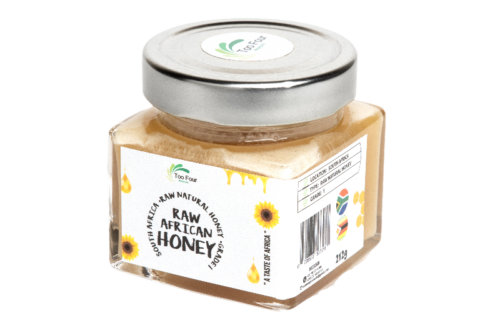
 The Sticky Situation: Honey's Got the Advantage!
The Sticky Situation: Honey's Got the Advantage!
In the world of sweeteners, two natural contenders have been battling it out for the title of the ultimate sweetener – honey and sugar. Each of these sweeteners has its unique characteristics, flavors, and health benefits. In this blog post, we’ll dive into the sweet showdown between honey and sugar, exploring their differences, uses, and the pros and cons of each. By the end of this article, you’ll be well-informed about these sweeteners and ready to make a more informed choice for your next sweet indulgence.
Honey: Nature’s Liquid Gold
Honey is often referred to as “liquid gold” for good reason. It’s a natural sweetener produced by bees from the nectar of flowers. Here are some key points to consider when it comes to honey:

1. Flavor Profile:
- Honey offers a wide range of flavors, from mild and floral to robust and bold, depending on the type of flowers the bees gather nectar from. Some popular varieties include clover, wildflower, and manuka honey.
2. Nutritional Benefits:
- Honey is packed with antioxidants, vitamins, and minerals. It contains small amounts of nutrients like vitamin C, calcium, and iron.
- Some varieties, like manuka honey, have additional health benefits, such as antibacterial properties.
3. Glycemic Index:
- Honey has a lower glycemic index (GI) compared to sugar, which means it has a milder impact on blood sugar levels. This can be advantageous for those watching their sugar intake.
4. Culinary Uses:
- Honey’s unique flavors make it a versatile ingredient in both sweet and savory dishes. It’s great for sweetening tea, drizzling over yogurt, or as a glaze for roasted vegetables.
Sugar: The Sweet Standard
Sugar, or sucrose, is a widely used sweetener derived from sugar cane or sugar beets. While it’s a staple in many kitchens, there are some important factors to consider:
1. Flavor Profile:
- Sugar has a neutral sweetness that doesn’t contribute any specific flavor to dishes. It’s a blank canvas for your culinary creations.
2. Nutritional Content:
- Sugar is considered “empty calories” because it provides energy without significant nutritional value. It’s high in calories but lacks essential vitamins and minerals.
3. Glycemic Index:
- Sugar has a high glycemic index, causing rapid spikes in blood sugar levels when consumed. This can be a concern for individuals with diabetes or those trying to manage their blood sugar.
4. Culinary Uses:
- Sugar is a common ingredient in baking, confectionery, and various processed foods. It’s essential for creating textures and sweetness in many recipes.
The Verdict: Honey or Sugar?
The choice between honey and sugar ultimately depends on your preferences and dietary considerations. Here’s a quick summary to help you decide:
-
Honey is a healthier option due to its lower glycemic index and added nutrients. Its unique flavors make it an excellent choice for specific recipes, but it might not work as a direct sugar substitute in all cases.
-
Sugar is a versatile, neutral sweetener that can be used in a wide range of dishes. However, it’s high in calories and lacks the nutritional benefits of honey.
Incorporating both honey and sugar into your diet in moderation can provide the best of both worlds. Use honey when you want to add a distinct flavor or benefit from its nutritional properties, and opt for sugar when a neutral sweetness is needed.
Conclusion:
The honey vs. sugar showdown is not about declaring a single winner but recognizing the strengths and weaknesses of each sweetener. With this knowledge, you can make informed choices when sweetening your favorite foods and beverages. Whether you lean towards the natural goodness of honey or the versatility of sugar, remember that moderation is key to maintaining a balanced and healthy diet. Enjoy your sweet journey!
